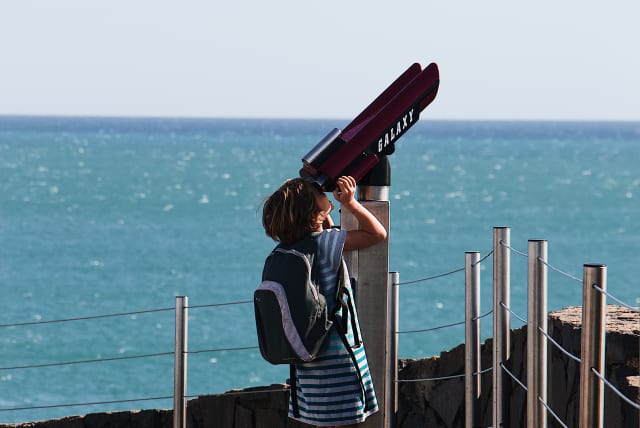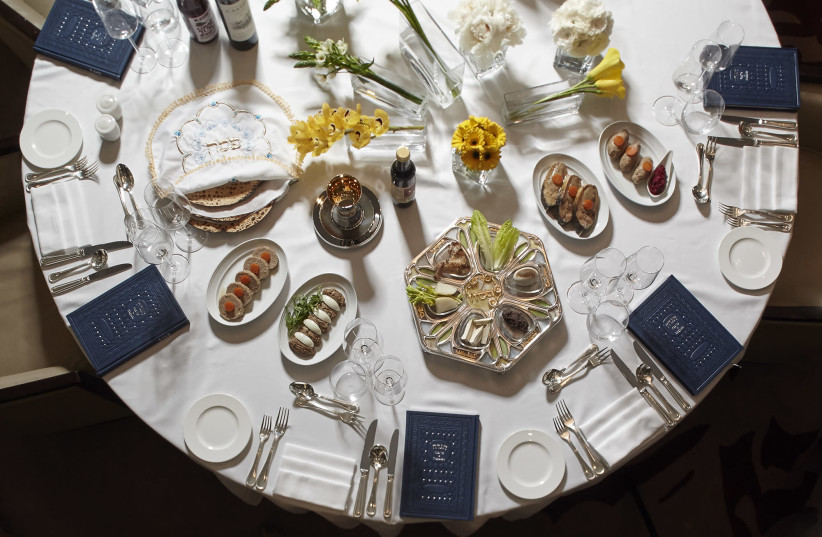What is your fantasy Passover Seder like?

Taking the time to imagine our Seder, or any meaningful event, means thinking about the values that are important to us.
After all the work and anticipation, Seder night is just behind us, in the rear-view mirror. For a few lucky people, Seder may have been a most magical and perfect experience, the Seder of your dreams. But for most of us, Seder night does not quite match our expectations.
Reflecting on Seder night brought memories of my son’s fantasy football (soccer) league. This is a league where you get to choose the players on your team and then sit back and hope they work as a team and win the league. A strange connection to Seder night, but relevant to the idea of the fantasy of what could be if you were to choose all the players and what position they would play. Very rarely do we have that opportunity, especially when it comes to our Seder table and who is going to be there.
Many of us have an idealized idea of what a Seder should be, perhaps what they call an “Instagram moment” where all looks perfect. The Seder other people seem to have where the youngest child sings the Ma Nishtana (the four questions) so sweetly and didn’t need lots of coaxing. The children all participated and didn’t leave the table in a huff. The siblings were all so happy to be together, that they didn’t revert to childish remarks about each other. The inclusiveness of ages and genders, where everyone left the Seder table with a feeling of a wonderful magical night. This type of Seder is so rare that if you were lucky enough to experience it, savor the moment. For most of us, Seder does not quite fulfill all our wishes.
What is your fantasy Seder like?
Try to reimagine the Seder you just had anew, just as you would a fantasy football team. You can choose what it looks like, who’s there, and what they are doing. If you can, slow down, take a minute, and conjure it up – your fantasy Seder. What type of atmosphere is there? What feelings does your fantasy Seder evoke? Perhaps you see children playing games and laughing, while adults look on with indulgent faces. Perhaps there are intellectual discussions, and people are bringing deep and meaningful thoughts and conversation to the table, or maybe people are drinking wine and laughing.
At your fantasy table, there may be people who could not be there in reality. People who have left this world and yet we have not let go of them, or ones we have not spoken to in many years for different reasons – families that are not together anymore, or the family that is still waiting in the wings, the partner or children who are yet to come into your life.
AS YOU look around your fantasy Seder table, you may notice different feelings coming up. It could be the faces of grandparents helping you feel safe and loved, or siblings with a sense of belonging and fun for the games you used to play. It may be your children or grandchildren and feelings of pride and joy in them.
By looking at our fantasy Seder, we can take a glimpse into what we really want from our Seder, our Passover, and what is important to us in our lives. Dr. Seuss, the well-known children’s author, wrote, “Fantasy is a necessary ingredient in living, it’s a way of looking at life through the wrong end of a telescope.”
Fantasies can show us what we value and care deeply about, they can teach us about ourselves and our deep-seated wishes.
If you can, pause now and switch your thoughts to the Seder you just attended, either as a host or a guest. Take a moment to see what feelings come up when you think about it. For most of us, Seder is a night of mixed feelings, of highs and lows. When we think about our feelings, they are probably diverse: the joy of being with people and the sadness regarding those people who are no longer there; the conversations and fun and also the arguments and tensions that may arise from different dynamics; the disappointment in the people around us and ourselves.
While fantasies can be helpful in teaching us about ourselves, they can also raise our expectations of what Seder night should or could be. The other side of expectation can be disappointment. Esther Perel, the renowned psychotherapist, explained, “expectations are resentment in the making”. This is true, but only part of the story. To have no expectations can be depressive and unrealistic and can signify the absence of hope.
What works better is to understand what our expectations are and how they fit with the reality. This understanding is a wonderful start in working toward experiencing Seder and other events in a positive light. Brene Brown in her book Dare explained, “Become conscious of your expectations. The fastest way for an expectation to morph into shame or resentment is for it to go unnoticed.” With an insight into what our fantasies say about our wants and needs, together with the understanding that our fantasies are just that, fantasies, and not based in reality, we can create moments that have meaning and value.
Taking the time to imagine our Seder, or any meaningful event, means thinking about the values that are important to us and how we can implement those elements in a way that is realistic.
Seder commemorates freedom, and this year perhaps the gift that we can grant ourselves is the freedom to imagine what our fantasy Seder would look like, the knowledge of what our Seder was in reality, and the ability to contemplate the two different scenarios. In so doing, we will be able to acknowledge our wants and needs which, in turn, can create a shift in perspective and expectations (and maybe some practical strategies to change some of those dynamics) so that next year when we sit down at our Seder table, we are closer to the Seder we dream about than the one we experienced this year.
The writer is a licensed social worker who works as a therapist with couples and individuals in Jerusalem. www.hadassahfidler.com
Jerusalem Post Store
`; document.getElementById("linkPremium").innerHTML = cont; var divWithLink = document.getElementById("premium-link"); if (divWithLink !== null && divWithLink !== 'undefined') { divWithLink.style.border = "solid 1px #cb0f3e"; divWithLink.style.textAlign = "center"; divWithLink.style.marginBottom = "15px"; divWithLink.style.marginTop = "15px"; divWithLink.style.width = "100%"; divWithLink.style.backgroundColor = "#122952"; divWithLink.style.color = "#ffffff"; divWithLink.style.lineHeight = "1.5"; } } (function (v, i) { });

